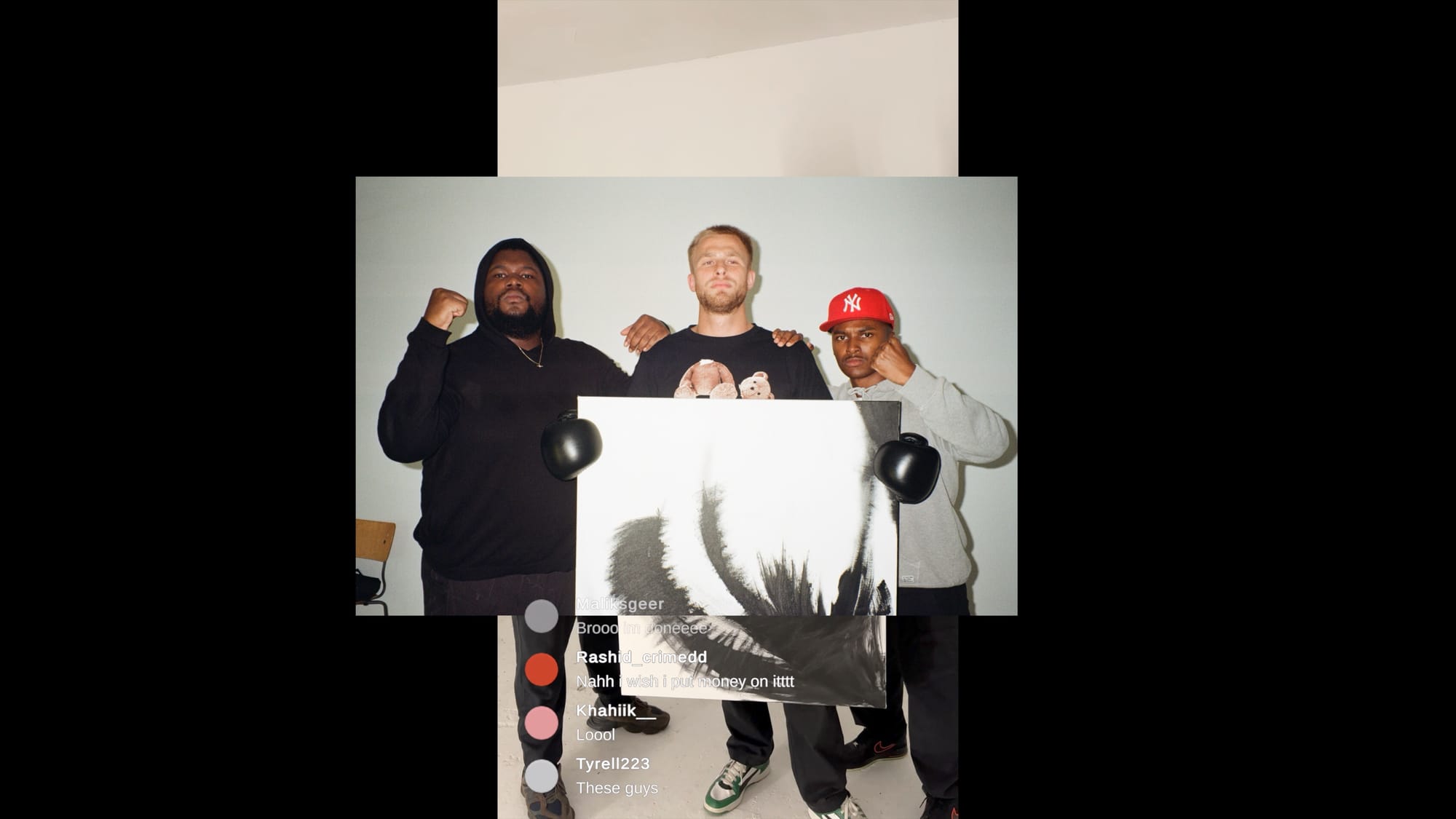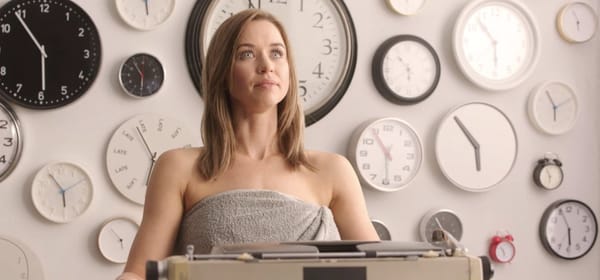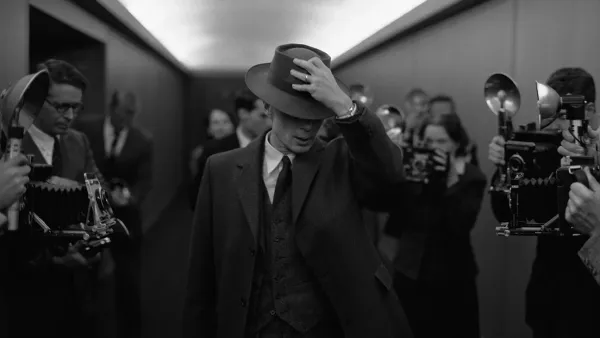Tuwaine Barrett & Bradley Banton dissect the process of creating "More Life" | BFI London Film Festival 2025
Set entirely in an Instagram Live, this hangout movie quietly catalogues friendship, identity and performance -- Lead Actor Tuwaine Barrett and Actor/Writer/Director Bradley Banton get into the process with us.
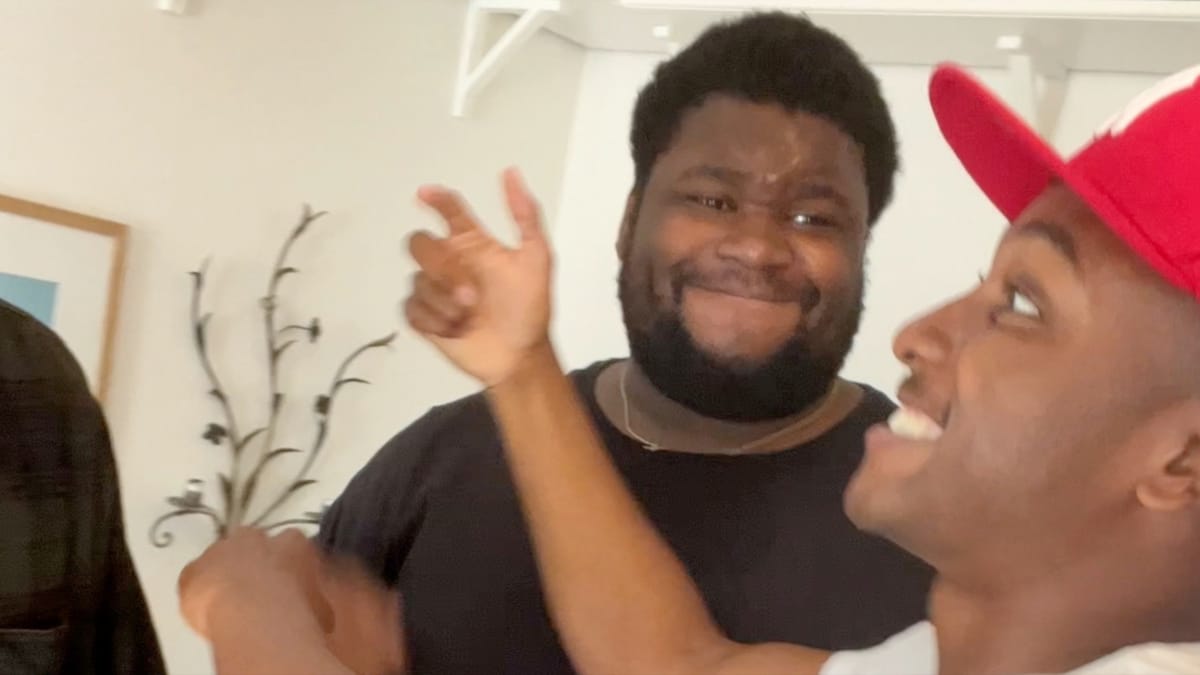
This interview has been edited for length and coherence - the first 14 unedited minutes can be found on our YouTube Channel. Biggest thanks to VAMP UK and TRA Publicity for the interview - You can find our review of "More Life" here.
Umnia: For some reason—oh god, I hate tech so much—it won't let me record. Okay. Here's what we're going to do. I'm going to just set up my phone. We're going to do it like the film.
Tuwaine: Let's go.
Bradley: Love it.
Umnia: Okay. Hello, Bradley. Hello, Tuwaine! Thank you so much for your time. Okay—specifically, what was the inspiration for making a film that is in an Instagram Live?
Bradley: Nicki Minaj, man. We were watching a live stream, and I was just like, this is so entertaining. We need to do something about this. I started plotting and thinking of ideas and then I was like, we’ve got to make it about—because my short films are quite abstract—and I was like, let me do something real about the people I grew up with. So I tapped into that, and then we just got writing away.
Umnia: And Tuwaine, as an actor receiving a film that is in this format—I mean, I believe you guys have known each other since you were sixteen—so it was probably very much a trust thing of—
Tuwaine: Yeah, 100%.
Umnia: —like, you know what, I’m going in with my bro, this is happening. What kind of format did the film come to you in, and as an actor how did you approach saying yes, I guess?
Tuwaine: Bradley came to me and said, I have you in mind for this role. I didn’t ask any more questions. I said I’m in. I’ve known him for so long and I trust him with my whole heart and anything that he wants to produce. I’m all in. I’m all in, yeah.
Umnia:I was going to ask about format because to me the film felt a bit like a play—it was happening as an Instagram Live but it felt like theatre, and then theatre with Instagram turned into a movie, like it was cinema. I wanted to ask you, Bradley, how you formatted explaining the vision to everybody around you and specifically, how did you do cinematography in an Instagram Live?
Bradley: With filming with friends, I was lucky to not have to explain too much because they were so on it and so generous and wanting to work on it. So luckily I didn’t have to do too much of that, but I just said, “Yo, we’re going to do it on a phone and it’s going to basically be like it’s an Instagram Live.” They didn’t really ask any more questions, luckily, because if I had to explain it, the concept could sound a certain way if I didn’t have the right words for it.
Umnia: I was going to say—cinematography on an iPhone Instagram Live, like the framing and the rule of thirds—how were you executing that? Was there someone behind the camera, or did you just set it up as an Instagram Live and go for it?
Bradley: No, so—
(Tuwaine's Cat, Bella, enters the chat)
Tuwaine: Sorry.
Umnia: Name, age, everything we need to know.
Tuwaine: Bella. Bella’s three, but she just wants attention and now she’s going to scramble away.
Umnia: Bye, Bella.
Tuwaine: Yep.
Bradley: That’s so funny. Now, back to ME-
(Laughter)
Bradley: I studied a lot of Ozu films when it came to blocking—Tokyo Story, Late Spring—and seeing where people are positioned. Coming from the Brit School as well, something big we learn is levels. You’ll do a performance and everyone’s standing in a straight line, and they’ll say, “You’re all in a straight line at the same level. You can be staggered in different ways.”
I think I applied that, and it was drilled into me at Brit with my teachers Sarah Goodle and Simon Stephens, and then reinforced through the works of Ozu. I did a run-through here in my room, saying, “This scene will look like this—Twain, you’ll be here, Depo, you’ll be here, Jordan, you’ll be here.”
Umnia: I was going to say, Tuwaine, in terms of rehearsing with that crew and taking direction from Bradley and bouncing off each other—the experience of rehearsing for an Instagram Live, but more importantly, rehearsing with your friends and putting something together—was it devised, or more structured?
Tuwaine: A bit of both. Definitely structured beforehand, but realizing we only—you know, we shot this in 48 hours. So when it came to learning lines, some things went out the door, and we just had to roll with it because the camera was rolling.
Umnia: Whoa.
Tuwaine: And that’s the reality of Instagram Lives. You can’t cut it. You can’t say, “Okay, let’s cut there.” We just had to roll with it. What was so fun working with Bradley is, I’ve worked with him since we were sixteen, and he’s still the same madman he was then.
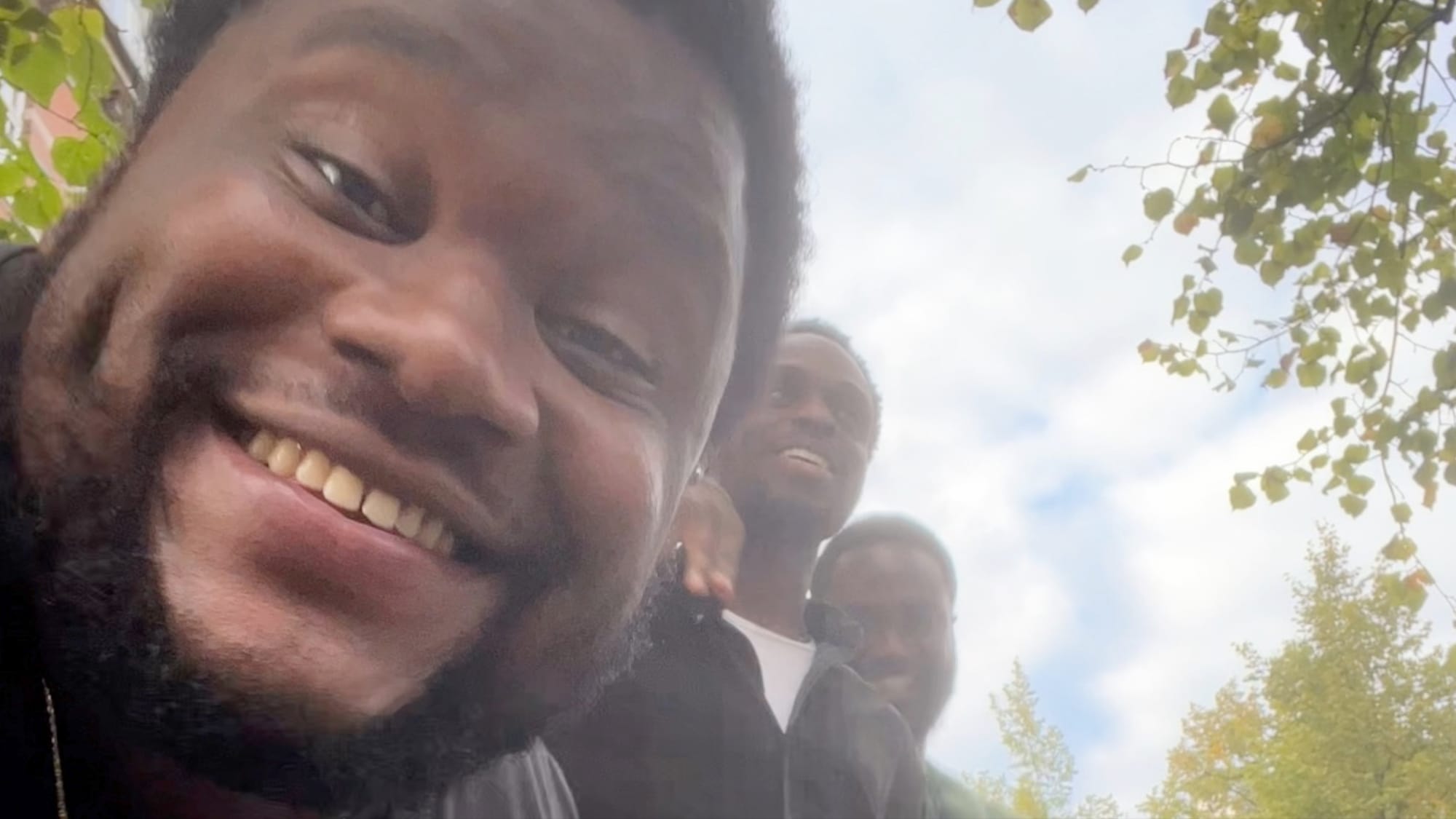
Umnia: You could feel it. This was a film that really knew what it was trying to achieve. It’s a hangout movie, but one with freshness and movement—and the characters were so clear, even though you were shooting in 48 hours, which is mad to me. Bradley, were the characters coming from people you knew, or was everyone playing a heightened version of themselves? How did you put together this tableau of characters?
Bradley: I think it was a medley of things. I’d like to say I wasn’t influenced by friends, but sometimes I come up with an idea I think is original and then realize where it came from. There’s resemblance in group dynamics—people you know, or your own situations. I wanted to create characters my friends could play, people I wanted to see them play.
Paul Thomas Anderson talks about how the easiest way to write is to make opposing people—people who oppose each other in different ways. So all of the characters have a driving force, and they each represent different aspects of Blackness.
Welton is kind of Black capitalist. Dippo is Black bourgeois artist—disconnected from the community he came from, but still taps in. Kieran is the Black intellectual—he loves and hates his community, that’s why he’s a teacher, because it feels unresolved to him.
And then you have performative Blackness, which is what Christopher is. He’s middle class, went to a certain school, and thinks certain things. That’s why he wears that New York hat—because he thinks that’s the thing. To some degree, that is who he is, but they all represent different facets of Blackness.
Umnia: -and I loved that you put this amazing group of opposing characters in Copenhagen—took them out of the pond, put them somewhere at contrast with their environment. Was that a choice you made?
Bradley: Yeah, that was a choice. I also wanted to go to Copenhagen. I love the city. But I also think that at least when I’ve gone, I’ve never felt othered in a bad way. I’ve felt different, but never fetishized or ostracized. People are like, “You’re from London? That’s sick.” There’s just love there.
I wanted to put us in a situation where we’re not tied to the systems in this country or others that have played a part in the past. Not that Denmark doesn’t have a past—but when you’re there, they’re socialist in a way, and you can see where the tax money goes.
Umnia: It’s a brilliant choice. I think those characters would’ve acted differently in London—there would’ve been a lot more interference. Tuwaine—in terms of your performance—was there anyone you were pulling from in your real life or in film?
Tuwaine: The main person I pulled from was myself in school. That person who always wanted the last word, wanted to be the loudest, but when they’re by themselves, they’re lonely. That’s masked with this exuberant character.
A couple of friends at the world premiere said, “You and Bolton are quite similar.” And I’m like, “I know.” For me, it was about knowing that Bradley wanted each of us to have a different energy—what that would mean and what I would bring.
Umnia: Yeah, because there was so much about that performance that provided the spine for everyone else to bounce off of.
Tuwaine: I made sure I was clear on that intention.
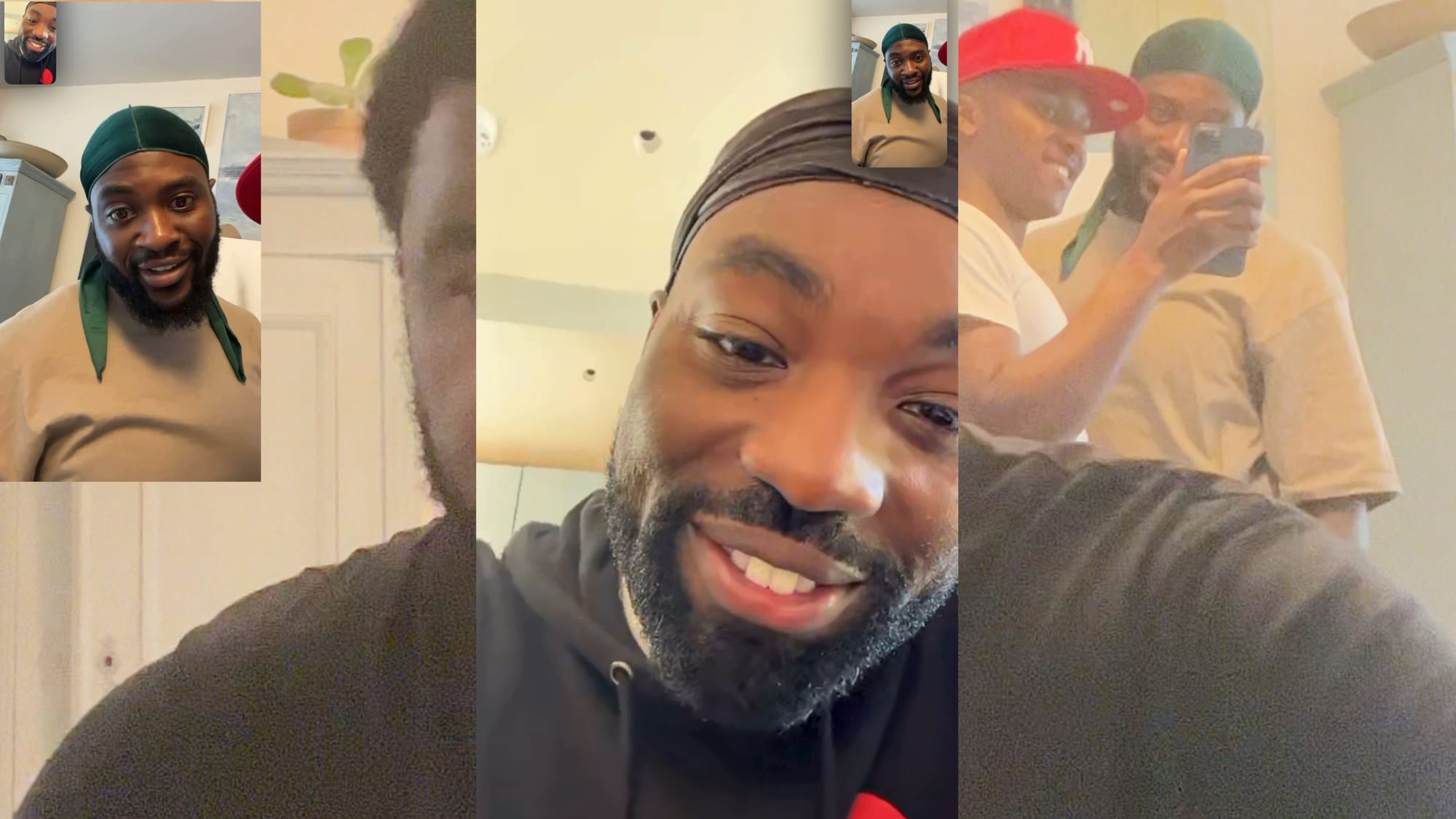
Umnia: And as the host of the Insta, it’s like keeping the orchestra going. I loved it. Before my final question—how did the Paapa cameo come about? He’s everywhere right now, and it was so nice to have him randomly come up on screen. That FaceTime call also breaks up the Instagram Live a bit.
Bradley: Yes, it does. That was through one of my best friends, Tahib Jomo, who knows him quite well. I know Paapa, but calling in a favor like that—you can’t do that with everyone. I asked Tahib, “Can we maybe get him?”
I remember his work in Kiri, and I wanted something like that—rugged, on his own path. Kind of like the sixth Power Ranger—outside the main group but able to float back in. He was so generous. He said, “Yeah, sure, man. Let’s do it.” It was super quick—like an hour. We FaceTimed, screen-recorded, he recorded on his end because of technical problems, sent it, and that was that.
Umnia: Wow. I’m still recovering from the fact this was a 48-hour shoot. I can imagine the edit must’ve been intense—especially the comments.
Bradley: Yeah. The editing wasn’t that hard because there were only a few takes where we didn’t fluff lines, which was a saving grace. With the glitches, we could splice together different takes. Working with friends who are great actors helped—they’d do things where I’d go, “That has to be in.”
The comments were the hardest part of post. There were over 1,500. We had to get them in the right order and timing. I worked with David Akenol, also known as The Storyteller on YouTube. He was the maestro of that stuff. We just slotted it all in, making sure the timing was right because it was reacting to things. That was probably the hardest part of post.
Umnia: Okay, final question. As artists, this is an incredible departure—a brilliant undertaking technically and in storytelling. I imagine a lot of your training, not just from Brit School, helped push this over the finish line. Was there anything in your creative process you had to let go of when making this film—something you couldn’t take with you?
Bradley: I think understanding that the text wasn’t sacred. That’s something beaten into us at drama school—that the text is sacred. But with this, the script was a suggestion. Whatever happens, happens. You can’t be beholden to it. As an actor, director, and writer, I had to let go of that.
Tuwaine: I think for me, the only thing I had to let go of was time. We had 48 hours, and I had just come off a Mike Leigh project. The way he works, you have time to create a full backstory for your character. I knew I couldn’t do that here with enough finesse.
Umnia: Detail.
Tuwaine: Exactly. So I thought, what can I bring from my own life and understanding that would make this character truthful?
Umnia: Letting go of that deep process and letting the subconscious take over.
Tuwaine: Yeah, that’s what it was. Still being present, though. In moments like that, you can get in your head. When the scene’s happening, you’re thinking about how the character’s responding, how you’re looking—and you’re not present. So letting go of that.
Umnia: Can I just add a quick question (!)—did it help that it was one-take, long-take scenes, getting into it with a bunch of people who were all deep in character? Did it help you stay in that moment?
Bradley: Definitely. There’s something easy about it. Method actors say they do it not because they think they’re better, but because it makes it easier. If you switch off and back on, it’s tougher than staying in it. That’s what we did—we stayed roughly in character the whole time, breaking out and back in. It was a nice transition.
Umnia: Bradley, Tuwaine—thank you so much for your time. I really appreciate it. Congrats on the film—it’s amazing. I hope so many people see it, and I’m looking forward to what you do next.
